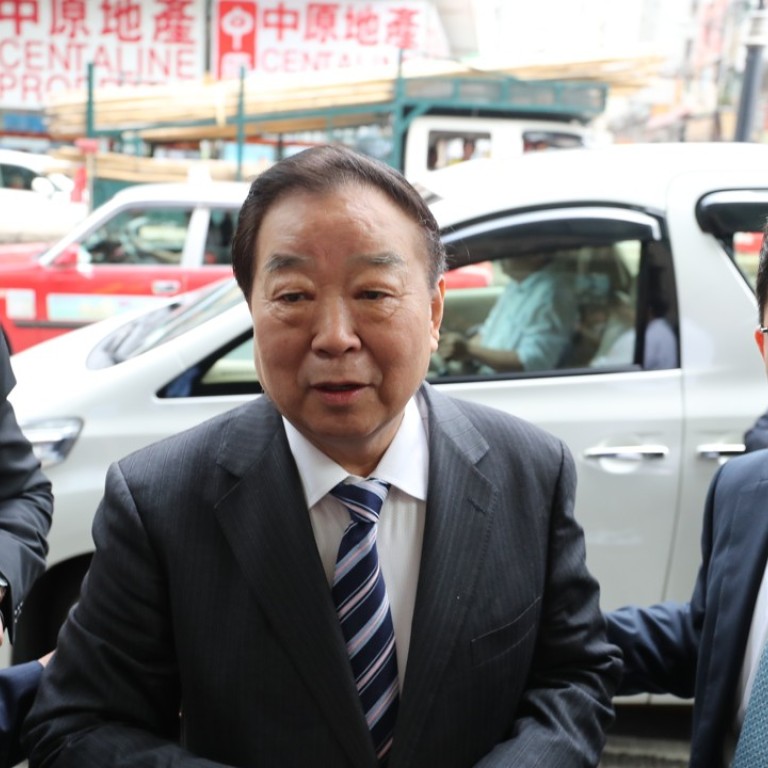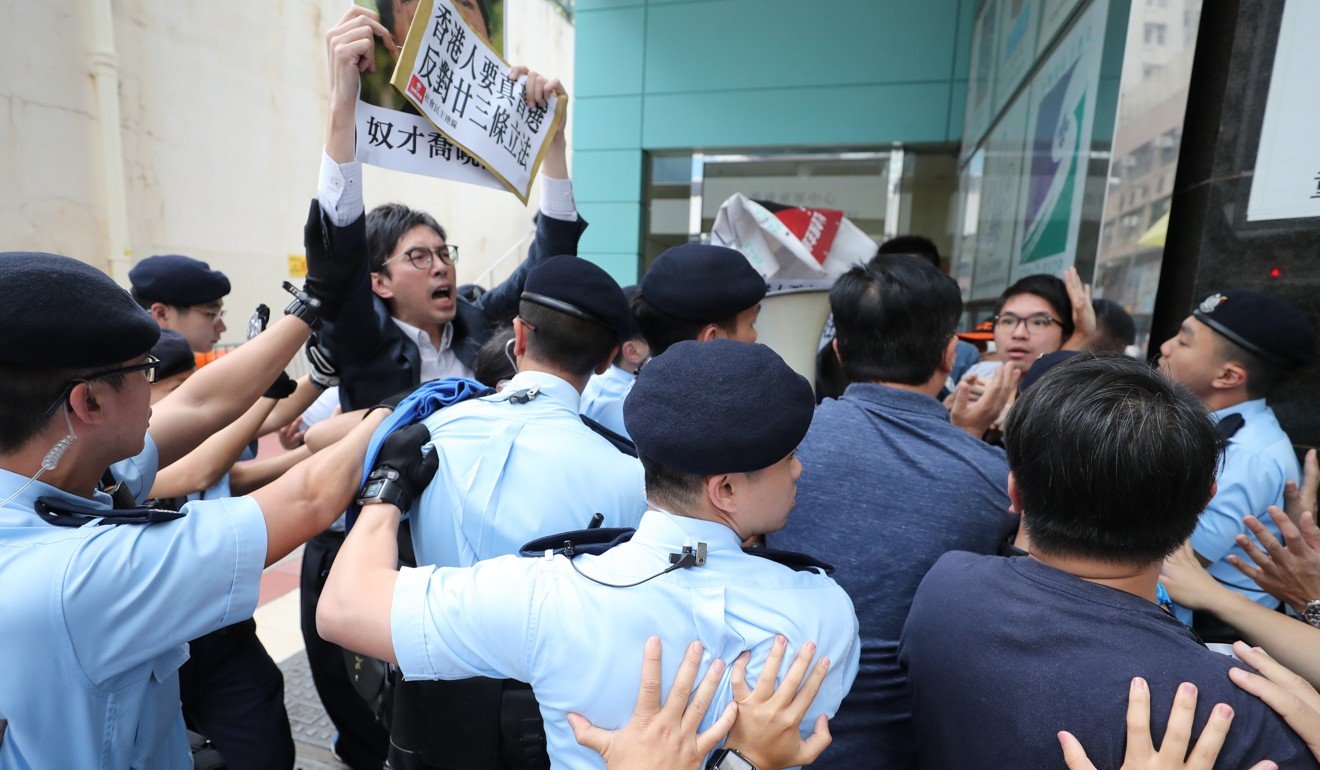
Hong Kong should support Communist Party and not cross ‘legal line’ to oppose socialism, Qiao Xiaoyang says
Former chairman of the national legislature’s law committee launches rare appeal in the city, citing country’s fundamental system and constitution
Hongkongers are free to practise their capitalist system in the city but they should support the Communist Party and accept that it is unconstitutional to oppose China’s socialist system despite their ideological differences, a visiting mainland legal expert said on Saturday.
Campaigning for independence is not a basic right in Hong Kong, Qiao Xiaoyang says
Making a rare appeal to Hongkongers to back the Communist Party, Qiao also issued a stern warning that the central government would not allow Hong Kong to be used “to shake up the nation’s socialist system”.
“There is an important legal boundary to Hong Kong’s capitalist system. The condition is that it must support the nation’s socialist system and be beneficial to it,” he said.
Why wouldn’t you support the Chinese Communist Party?
“Why wouldn’t you support the Chinese Communist Party?”
Qiao stressed that even as Hong Kong practised capitalism, the city could still support the country’s wider system of socialism, just as China had always backed the city’s capitalism.
“Does the [party deserve] support from Hongkongers? Ideological differences aside, I believe the answer is yes.”
He added that while the Communist Party welcomed scrutiny, it was “unconstitutional” for those in Hong Kong to “oppose Chinese socialism publicly”.

Qiao framed his arguments along three key themes: the Chinese constitution is all-encompassing in the country; socialism is what sets China apart from other nations; and the essence of the constitution is to enshrine socialism as the fundamental system of China.
It has been rare for Beijing to publicly push for party support in Hong Kong since the city’s return to Chinese rule in 1997. Hong Kong practises a capitalist and legal system different from the mainland, under autonomy guaranteed by the Basic Law.
7 things you need to know about Xi Jinping’s vision of a ‘new era’ for China
Qiao said on Saturday the amendment was to affirm the leadership of the party. He attributed China’s economic growth to the party’s system of socialism.
Hong Kong secondary school pupils left scratching their heads after Li Fei’s Basic Law speech
“If one allows the call of independence to exist and take root, it will eventually endanger ‘one country, two systems’,” Qiao warned. “So on this subject, we just cannot behave like an open-minded gentleman.”
Lee Cheuk-yan, former chairman of the Hong Kong Alliance in Support of Patriotic Democratic Movements, expressed worry Qiao’s remarks meant there was less room for any criticism of the party.
“They stress that the constitution is above the Basic Law and the party leadership is a core part of the constitution ... But which article of the Basic Law stipulates that we have to support the leadership of the Communist Party?” Lee asked.
Which article of the Basic Law stipulates that we have to support the leadership of the Communist Party?
Albert Ho Chun-yan, chairman of the alliance, believed Qiao’s speech did not carry a hardline stance.
“He appealed to Hongkongers to accept the political reality in a rather soft way, not slamming opposition to the Communist Party as subversive, which is a view that mainland authorities take,” Ho said. “That shows he accepts Hong Kong has freedom of speech to criticise the party.”
Meanwhile, Democratic Party chairman Wu Chi-wai asked aloud if China was deviating from late paramount leader Deng Xiaoping’s call to protect the city from the influence of leftist or ultra-conservative thoughts.
“Are the Beijing [experts] trying to tighten the central government’s stance on Hong Kong? I think what they are doing is contrary to the nation’s principles,” Wu said.
Hong Kong’s new top Basic Law official: the bureaucrat involved in drafting recent amendments to China’s constitution
Starry Lee Wai-king, chairwoman of the Democratic Alliance for the Betterment and Progress of Hong Kong, said Qiao was only offering a complete picture of the Communist Party’s leadership in the socialist system.
She said “constructive criticism” against the party “will always be allowed” but it was not to be confused with subverting the mainland’s system.
Additional reporting by Kimmy Chung and Tony Cheung

